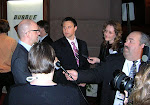I’ve been naïve. Let me just start by saying that up front.
Marietta news fans have no doubt noticed a marked difference between WMOA’s coverage of the Daniel Keck trial as compared with other local news sources. Even when the news is grim, I try to keep our show as family friendly as possible. In keeping with that philosophy, I try not to use terms that I wouldn’t want to have to explain to my kids. Not only do my two little girls hear my daily news reports, but I have always thought that most people probably don’t want the gory details first thing in the morning anyway. The news isn’t always positive and encouraging, but it doesn’t need to be hideous and appalling.
So, while the courtroom scene has been very graphic lately, we’ve stuck with words like “predator” instead of “sex offender” and we don’t go into much detail about the alleged crimes.
There are two distinct schools of thought on this one.
Some would argue that detailing the offenses may help to educate parents and better assist them in protecting their children. Others find the specifics are too much and it has even been suggested that they could serve as a how-to manual for would-be predators.
When there is a suspected predator on the loose, it’s important for parents to have the relevant information. But, how much should broadcast journalists tell – particularly about a predator in custody? It is a difficult question and finding the right balance can be a challenge.
On Tuesday evening, when the Keck case was handed over to the jury, I explained to my children that I was waiting for a verdict. My oldest girl, a ten year old, instantly interjected, “Do you mean the sex offender case?”
“Where did you hear that word?” I asked and was anxious to find out. “I don’t use that word.”
Kaitie explained that the source of her information was another local news operation and I shook my head in disbelief. While I had been diligent with my own newscasts, apparently I hadn’t been keeping my children far enough from the other reports. They didn’t understand what they had heard and they had a lot of questions now that the topic was out in the open.
How naïve I’ve been to think that I could keep the kids from the details I decline to discuss on air! Yet, this case was hardly something that eight and ten year olds could or should understand. Though I didn’t choose the situation, it did provide us with an opportunity to talk about strangers, bad touching, and the importance of sticking together.
For now, I prefer to stick with my theory and belief that most people probably don’t want to spend the first waking moments of their day thinking about sex offenders. However, I’d love to hear what you have to think.
How far is too far? How much should we tell? What is better left unsaid?
It’s your turn . . . what would you print or say if you ran the newsroom?
Thursday, September 10, 2009
Subscribe to:
Comments (Atom)


